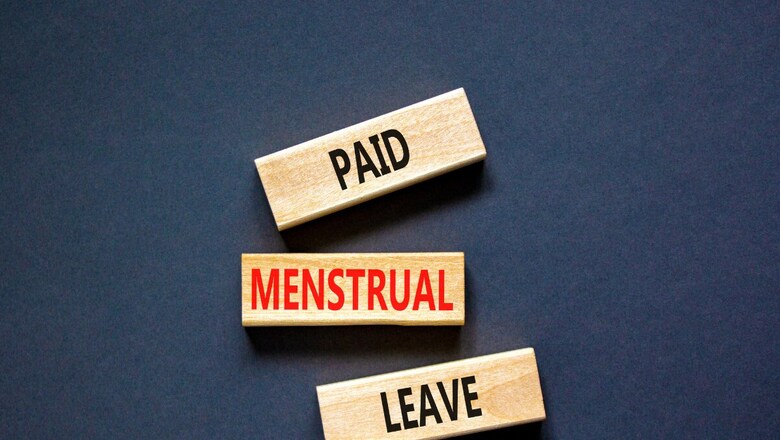
views
The discussion around menstruation has become a hot topic in the nation, although some companies of India Inc have already introduced menstruation leave policies with various entitlements, reflecting the importance of female participation in the workforce.
According to the World Economic Forum – Global Gender Gap Report 2023, India has shown an improvement of eight places from 2022, ranking 127th out of 146 countries in terms of gender equality.
Some contend that period leave is just as important for working women as maternity leave, while others believe that it represents a step back for women’s rights and perpetuates the stereotype that women are less capable than men, which may lead to additional discrimination.
Chai Sutta Bar, an Indore-headquartered chai and beverage serving company, introduced period leave but observed different responses. Anubhav Dubey, Co-Founder and CEO of Chai Sutta Bar, said: “Some of the female members of the team said that they did not need any period leave, while others said that they needed this leave because they suffered unbearable cramps.”
The ‘Endometriosis Society India’ estimated that more than 25 million women are affected by endometriosis, a disease that causes severe period pain to the point that some women may pass out. Similarly, the ‘Clinical Evidence Handbook’ states that 20% of women experience incapacitating symptoms that interfere with day-to-day activities, such as nausea, cramping, and other similar symptoms.
“Certainly, unless someone experiences intense pain or severe cramps, female employees are generally willing to participate because they understand,” Dubey said.
As per the Annual PLFS Reports of the ‘Ministry of Labour and Employment’, the estimated usual status of the Labour Force Participation Rate (LFPR) for women aged 15 and over were 30.0%, 32.5%, and 32.8% in 2019–20, 2020–21, and 2021–22, respectively. The growing trend shows a growing number of employers are boosting employee benefits related to caregiving, including menstrual and maternity leave.
“Since the implementation of the period leave policy in our company, notable changes have been observed. The policy has instilled confidence in female employees, creating a workplace environment where it is evident that the company genuinely cares about the well-being of its female staff and understands their personal feelings,” Dubey added.
The World Bank, in its brief titled ‘Menstrual Health and Hygiene’, cited: “Women who lack female-friendly sanitation facilities in the workplace lose wages for days of work missed during menstruation and are viewed as unreliable workers, diminishing options for advancement.”
In such cases, period leave performs instrumentally to enhance the company’s performance. “Paid leave is instrumental in enhancing company performance, as it ensures a strong workforce. The implementation of such policies enables us to attract and retain good human resources over an extended period. We believe this positively impacts our business by promoting a healthy work-life balance and nurturing a sense of togetherness among our team members,” Dubey added.
According to a Moneycontrol survey, the percentage of women taking period leave ranges from 25% to 83% in India Inc. But it is also a fact that most of the female employees are still not aware of it.




















Comments
0 comment